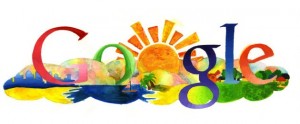 SEO = Search Engine Optimization: the process of maximizing the number of visitors to a particular website by ensuring that the site appears high on the list of results returned by a search engine.
SEO = Search Engine Optimization: the process of maximizing the number of visitors to a particular website by ensuring that the site appears high on the list of results returned by a search engine.
BS = Bull Shit
IMO = In My Opinion
As a website designer, I often receive requests from clients to optimize their site for SEO, and that is when I have to explain that like all other aspects of marketing, I have a completely different view on SEO than most people. I think SEO is total bunk, and that giving an SEO person money is the equivalent of flushing it down the toilet.

Since 1997 I have been urging my clients to write authentic, heart-felt copy that is well described with headlines, sub-heads, bullet points and links, and then to promote their websites using online directories (and now social media and blogs). History proves this is still the best (and least expensive) way to ensure your website is found by your perfect customers.
A bit of SEO History
I first heard about SEO in 1997 when I started designing websites. Back then for a website to be found on a search engine, Webmasters would simply submit an URL to the search engine and an electronic ‘spider’ would go out to index that site and then the site could be found on that engine. As Webmasters became more sophisticated, they began providing METATAGS that included keywords and phrases to provide a guide to the site’s content.
Using METATAGS to index pages was found to be unreliable, however, because the webmaster’s choice of keywords in the METATAG could be an inaccurate representation of the site’s actual content. Inaccurate, incomplete, and inconsistent data in METATAGS could and did cause pages to rank for irrelevant searches, thus pissing off the search engine providers.
Web content providers also manipulated a number of attributes within the HTML source of a page in an attempt to rank well in search engines. They even did fancy things like creating invisible pages loaded with popular keywords that once visited would jump to a website that often had nothing to do with the keywords searched.
 Google Comes to Save the Search
Google Comes to Save the Search
In 1998, Google was founded and they brought on more complicated search algorithms that emphasized the site content, site programming and off-site factors (such as backlinks from high-ranking sites) to offer their customers better service. Google’s aim was to ensure that all searches return good organic results for their customers rather than returning ‘bad results’ due to unscrupulous SEO manipulators.
As Google quickly rose to the most popular search engine, SEO experts had a new battle to wage in order to get their sites to rank. But as years have passed, these experts have become less able to produce consistent results. One reason is that Google has worked hard to complicate their algorithms .
In 2009 Google started using a person’s web browsing history to populate search results, so one person searching the exact same term might come up with different results than another person with a different browsing history. Then Google started implementing systems which penalize sites using duplicated content (2009) Historically websites have copied content from one another and benefited in search engine rankings by engaging in this practice, however Google implemented a new system which punishes sites whose content is not unique.
In 2010, Google made over 500 changes to their algorithms confusing all SEO experts. Then in 2011, in a move that in my opinion made all SEO experts obsolete, Google created a system that penalizes websites that use any ‘manipulative techniques’ to get better ranking.

Then Why Isn’t SEO Dead?
You may be wondering how is it that though Google penalizes efforts to trick them into ranking a site better, many marketing agencies get thousands of dineros per month from each customer in attempts to game the search system?
I just read that over 1 million people on LinkedIn have SEO in their job title.
This year I had a client who was to start paying their SEO expert $1000 + per month as soon as the agency could get his site to page one of Google. When I was working with him, eight months had passed and still these experts couldn’t get him to page one. Luckily his contract didn’t require payment until success was at hand. But thousands of other website owners are not so lucky.
I frequently analyze the offerings of other website providers to see what the industry is doing, and I notice that SEO people are still out there charging tons of money to get sites ranked better on search engines. Most of the time they require high-cost ongoing contracts due to the changes in Google’s algorithms . Almost daily, the SEO agencies have to change every site in their client-base in attempts again to outsmart Google.
My theory is that SEO people are very smart scholarly types who know how to BS their clients into such utter confusion that they pay fork over their dollars out of fear.
What should I do instead?
As I said earlier in this article, I have since 1997 advised my clients to write authentic, well-described, accurate content for their websites so that any search that turns up their site will be a ‘good result’ for the searcher.
Your authentic message and offerings, not your SEO tweaked verbiage, is what will capture your visitor’s attention and help them recognize you as the one they are seeking.
 Additionally, I advise that my clients promote their authentic brand through online bulletins (like Craigslist), blogs (like WordPress and Blogger) and Social Networks (like Facebook). Being everywhere online (with original content in each arena) is great mojo for being found online.
Additionally, I advise that my clients promote their authentic brand through online bulletins (like Craigslist), blogs (like WordPress and Blogger) and Social Networks (like Facebook). Being everywhere online (with original content in each arena) is great mojo for being found online.
So the bottom line if you want to be found online is be active promoting your authentic site. There are no tricks that will outsmart Google into bringing up your site ahead of someone else for perpetuity. Only your ongoing authentic marketing activity can ensure that your perfect customers can find you AND recognize you.
WANT TO USE THIS ARTICLE IN YOUR EZINE OR WEB SITE? You can, as long as you include this complete blurb with it: Magical Marketer Julia D. Stege, MFA helps people attract their perfect customers with a unique combination of Law of Attraction, wildly attractive logos and websites, and smart Internet marketing techniques. If you’re ready to start attracting your perfect customers now, get Julia’s free Magical Marketing Toolkit at http://www.magicalmarketingtoolkit.com




Thanks, Julia, for this illuminating article. I feel like I can breathe. You are so right when you say techie folks prey on our ignorance. Oh! I feel so much better knowing I only have to focus on authentic communication to get my message out there, not techie tricks like SEO…
Hey Uma, I’m glad you can breathe, so take a few breaths and I look forward to seeing your authentic marketing soon!
Thanks, Julia, for your refreshing explanation of SEO. I always had a feeling that the S and O stood for Snake Oil, but I didn’t know why. You’ve shared a well-researched explanation that helps me understand what I need to do. I look forward to working with you to make that happen!
I’m glad you’re with me on this. As I said, my views aren’t always popular, especially among SEO people. I personally don’t like it when they say design is unnecessary to the success of a site so I can understand they won’t like this one! LOL
I was just reading several articles about a strategy for creating successful niche websites…
You choose the best keywords for your website and find about 20 you will focus on during this process. You place an opt-in on your home page, create good content on your blog/website, and then write an article a week (which you then spin to create hundreds of knock-off articles) that links to your blog. You use FB & Twitter to link to the articles and Squidoo or another hub site to link to your blog and voila, success.
Have you heard of that strategy and do you think it, also, is B.S.? Because it is definitely a lot of work! Just understanding the process (if I do!) took several re-reads of the posts. I’m interested in knowing what you think before I invest time in the process & money for help with keywords & spinning the articles (a service that lets you examine them b4 submitting them so you know they aren’t junk w/ your name on them).
Hey Jeanine,
I do agree with the strategy you mention. In fact I taught a course 14 times called Attracting Perfect Customers Online where I went through how to do that process. I do not recommend hiring someone to choose keywords for you, but rather that you choose keywords that authentically resonate with you. Use those frequently and consistently and soon you will be found via Google for those words!
Choose my own keywords? The ones that make sense to me? I could HUG you for that!!
And you taught a process similar to what I’ve described? That is golden because you are the kind of person I resonate with as a mentor.
Jeanine, if you are seeking a marketing maven to support you in your efforts to attract perfect customers online, I’m happy to speak with you about how I can help. Just go to http://www.magicalstrategysession.com and schedule with me ; )
GREAT info! Thanks so much, Julia!
My pleasure Jeanne, I’m glad you liked it.
Excellent explanation, Julia. Thank you! Back in 1997 when the old site was being built I didn’t know any of this stuff and have since been concerned that I didn’t have any metatags on my products. I was about to start wading through them when I shifted gears and hired you to get me on the right track with the site. People do find the old site, the words are accurate if not abundant, and are really happy when they do. I am looking forward to the new build.
What SEO folks don’t want you to know is that the simpler the better. Google doesn’t need to be outsmarted when your content is good and well described. Their intention is to bring your site up when it’s the best match for their customer’s needs.
Excellent article, Julia. Thanks. It’s nice to have SEO and Google’ search engine so clearly explained.
You’re welcome Michelle… it’s about time I wrote this article! I’ve been trying to explain this to clients all along but now I have it in writing ; )
I agree with all the comments above. I appreciate your honesty Julia and am so grateful to know you speak your truth so that people like me can learn how to attract the right people, who need what I offer. Trying to outsmart Google, is like me trying to run a race with Mo Farah!
Thank you for sharing this article. 🙂
You are right Maeve! Trying to outsmart Google? Not so smart! LOL
Why would we want to attract folks that an SEO person thinks would be best for us anyway. I am sure they work in volume, not authenticity. Thanks for caring enough to share this valuable information with all of us.
Hurrah, that’s what I was seeking for, what a information!
existing here at this webpage, thanks admin of this web site.